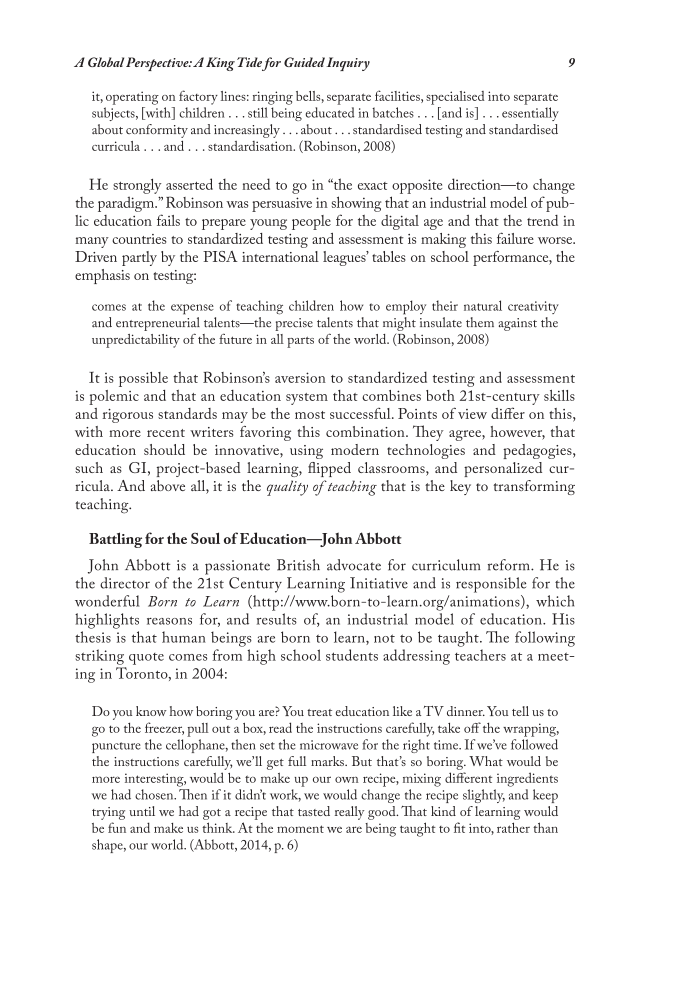A Global Perspective: A King Tide for Guided Inquiry 9 it, operating on factory lines: ringing bells, separate facilities, specialised into separate subjects, [with] children . . . still being educated in batches . . . [and is] . . . essentially about conformity and increasingly . . . about . . . standardised testing and standardised curricula . . . and . . . standardisation. (Robinson, 2008) He strongly asserted the need to go in “the exact opposite direction—to change the paradigm.” Robinson was persuasive in showing that an industrial model of pub- lic education fails to prepare young people for the digital age and that the trend in many countries to standardized testing and assessment is making this failure worse. Driven partly by the PISA international leagues’ tables on school performance, the emphasis on testing: comes at the expense of teaching children how to employ their natural creativity and entrepreneurial talents—the precise talents that might insulate them against the unpredictability of the future in all parts of the world. (Robinson, 2008) It is possible that Robinson’s aversion to standardized testing and assessment is polemic and that an education system that combines both 21st-century skills and rigorous standards may be the most successful. Points of view differ on this, with more recent writers favoring this combination. They agree, however, that education should be innovative, using modern technologies and pedagogies, such as GI, project-based learning, flipped classrooms, and personalized cur- ricula. And above all, it is the quality of teaching that is the key to transforming teaching. Battling for the Soul of Education—John Abbott John Abbott is a passionate British advocate for curriculum reform. He is the director of the 21st Century Learning Initiative and is responsible for the wonderful Born to Learn (http://www.born-to-learn.org/animations), which highlights reasons for, and results of, an industrial model of education. His thesis is that human beings are born to learn, not to be taught. The following striking quote comes from high school students addressing teachers at a meet- ing in Toronto, in 2004: Do you know how boring you are? You treat education like a TV dinner. You tell us to go to the freezer, pull out a box, read the instructions carefully, take off the wrapping, puncture the cellophane, then set the microwave for the right time. If we’ve followed the instructions carefully, we’ll get full marks. But that’s so boring. What would be more interesting, would be to make up our own recipe, mixing different ingredients we had chosen. Then if it didn’t work, we would change the recipe slightly, and keep trying until we had got a recipe that tasted really good. That kind of learning would be fun and make us think. At the moment we are being taught to fit into, rather than shape, our world. (Abbott, 2014, p. 6)
Document Details My Account Print multiple pages
Print
You have printed 0 times in the last 24 hours.
Your print count will reset on at .
You may print 0 more time(s) before then.
You may print a maximum of 0 pages at a time.
























































































































































